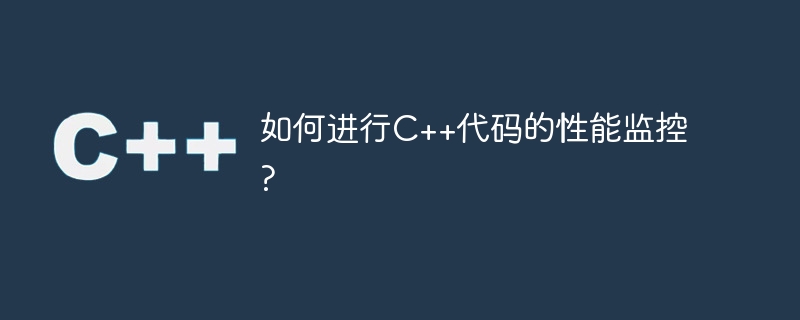

How to monitor the performance of C code?
Introduction:
In software development, performance is a very important indicator. For C developers, monitoring the performance of their code can help them discover potential performance problems and make optimizations to improve program efficiency. This article will introduce some commonly used C performance monitoring tools and techniques to help developers better monitor and optimize their code.
1. Performance monitoring tools:
2. Performance monitoring technology at the code level:
3. Performance optimization skills:
Conclusion:
By using performance monitoring tools and techniques, developers can better understand and optimize the performance of their C code. Regular performance monitoring and optimization is an integral step to ensure that your program remains in an efficient and scalable state.
The above is the detailed content of How to perform performance monitoring of C++ code?. For more information, please follow other related articles on the PHP Chinese website!
 Introduction to the usage of vbs whole code
Introduction to the usage of vbs whole code
 What are the differences between c++ and c language
What are the differences between c++ and c language
 Recommended learning order for c++ and python
Recommended learning order for c++ and python
 Cost-effectiveness analysis of learning python and c++
Cost-effectiveness analysis of learning python and c++
 Is c language the same as c++?
Is c language the same as c++?
 Which is better to learn first, c language or c++?
Which is better to learn first, c language or c++?
 The difference and connection between c language and c++
The difference and connection between c language and c++
 C++ software Chinese change tutorial
C++ software Chinese change tutorial




